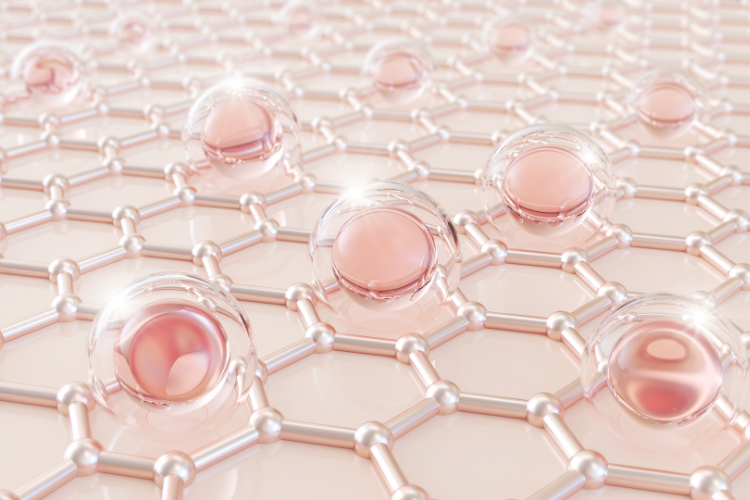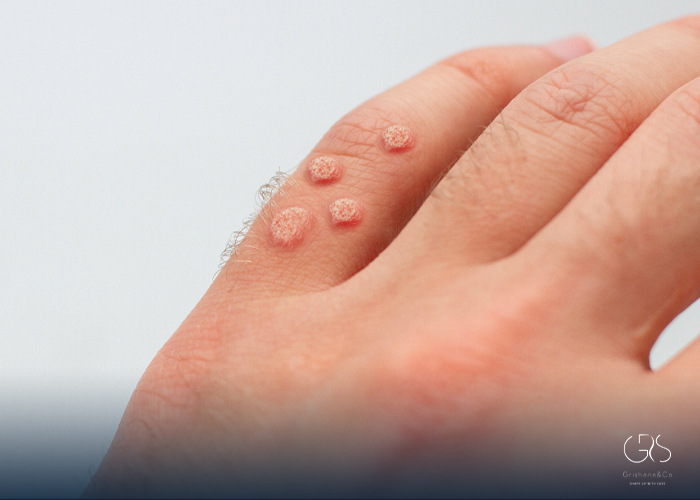Collagen is an essential protein that plays a significant role in maintaining the structural integrity of our skin, bones, muscles, and tendons. With age, collagen production naturally declines, leading to wrinkles, joint pain, and other signs of aging. However, there are ways to promote collagen synthesis in our bodies by incorporating specific foods into our diets. In this blog post, we will explore the best foods to eat for a collagen boost, backed by expert advice from registered dietitians and supported by relevant statistics. Let’s take a closer look at these fantastic foods that can help unlock the secrets to healthy and glowing skin.
Berries:
Berries are not only delicious but also great for enhancing collagen levels. Packed with antioxidants and vitamin C, they promote collagen production while protecting against oxidative stress. They also contain other beneficial compounds that contribute to overall skin health.
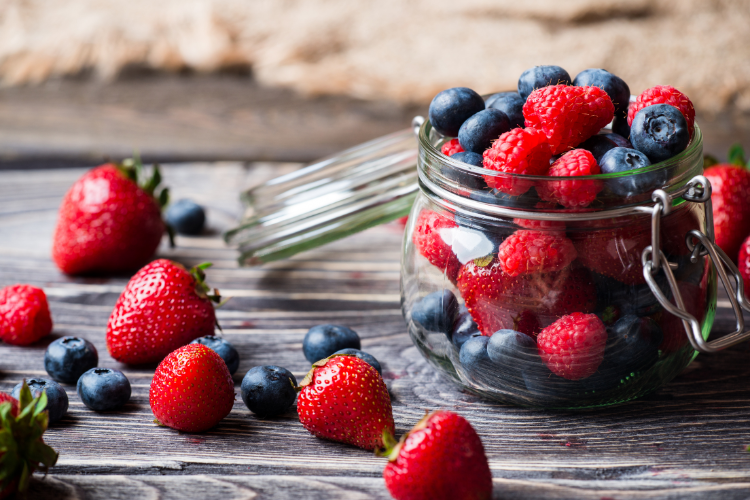
Citrus fruits:
Oranges, lemons, and grapefruits are rich in vitamin C, a vital nutrient for collagen synthesis. Adding these fruits to your diet can aid in repairing and maintaining healthy skin tissues.
(Read more about Lemon)
Leafy greens:
Spinach, kale, and other leafy greens contain high levels of antioxidants and minerals, which help prevent collagen breakdown. These nutrient powerhouses also offer other health benefits, making them an excellent addition to any diet.
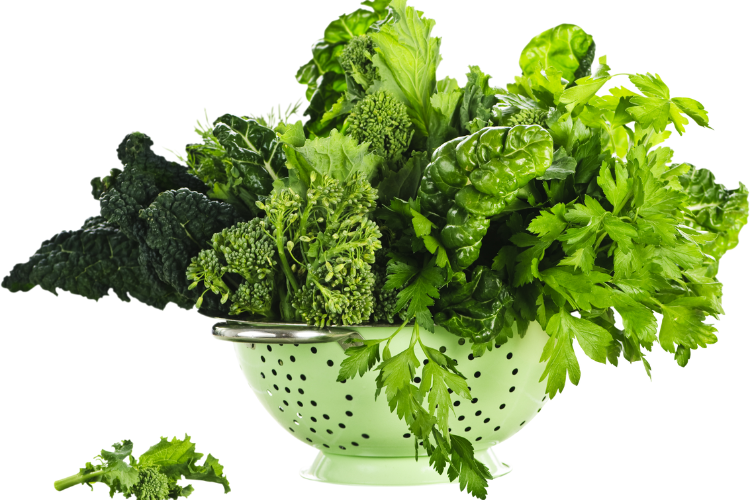
Bell peppers:
Colorful bell peppers are packed with vitamin C, making them potent collagen-boosting foods. Consuming a variety of bell peppers can aid in reducing fine lines and wrinkles.
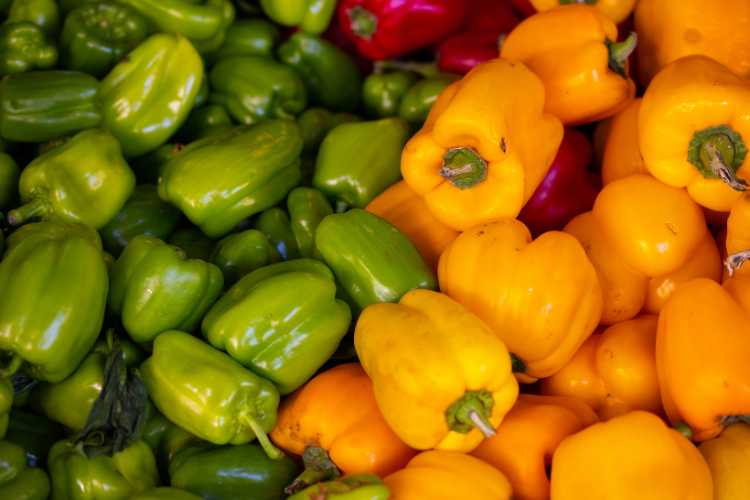
Nuts and seeds:
Almonds, walnuts, flaxseeds, and chia seeds are rich in essential fatty acids, which promote collagen synthesis. These healthy fats also contribute to skin hydration and elasticity.
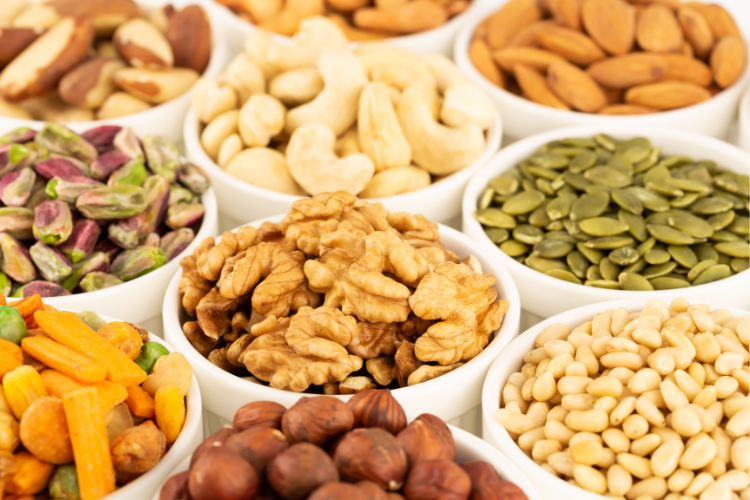
Fish and seafood:
Fatty fish like salmon, mackerel, and tuna are excellent sources of omega-3 fatty acids. These healthy fats support collagen production and help retain moisture in the skin, thereby reducing signs of aging.
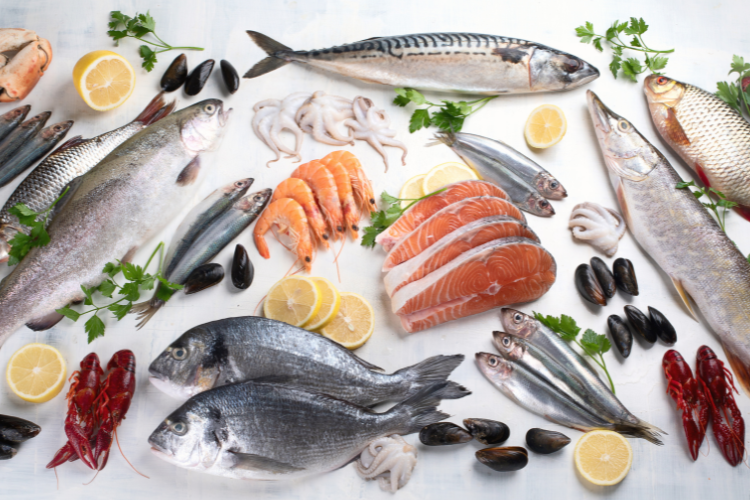
Bone broth:
Bone broth is gaining popularity for its collagen-boosting properties. It is rich in amino acids that support collagen synthesis and contains trace minerals necessary for healthy skin. Incorporating bone broth into your diet can be a simple and effective way to improve collagen levels.
Eggs:
Eggs are not only a great source of protein but also contain essential amino acids necessary for collagen production. They are rich in biotin, an essential nutrient for skin health.
Avocado:
This creamy fruit is packed with healthy fats, antioxidants, and vitamins, making it a perfect addition to a collagen-boosting diet. Avocado nourishes the skin and helps maintain its elasticity and moisture.
(I suggest you read my article on avocado consumption. It provides more information on the topic)
Beans and legumes:
Beans and legumes are rich in protein, which is essential for collagen synthesis. They also contain various minerals and antioxidants that benefit overall skin health.
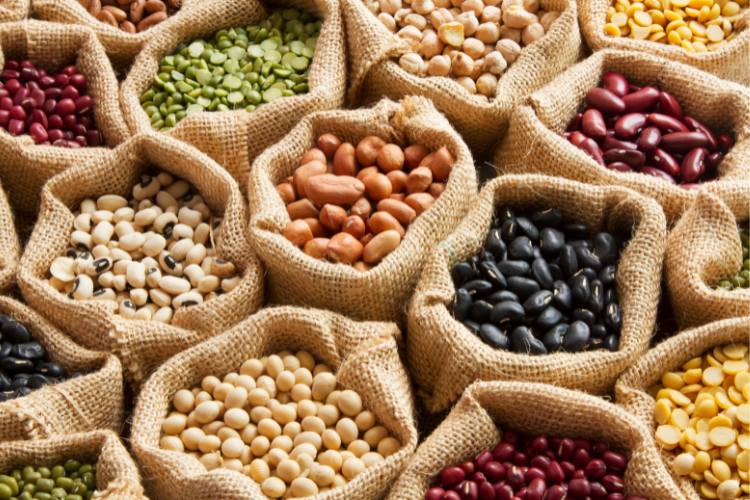
Tomatoes:
Tomatoes are high in lycopene, an antioxidant known for its collagen-protecting properties. Incorporating tomatoes into your diet can help maintain youthful skin and protect against damage from harmful UV rays.
Dark chocolate:
Yes, you read it right! Dark chocolate, especially the one with a high cocoa content, contains flavanols that can improve skin elasticity and support collagen production. Enjoying a small portion of dark chocolate can be an indulgent and healthy treat.
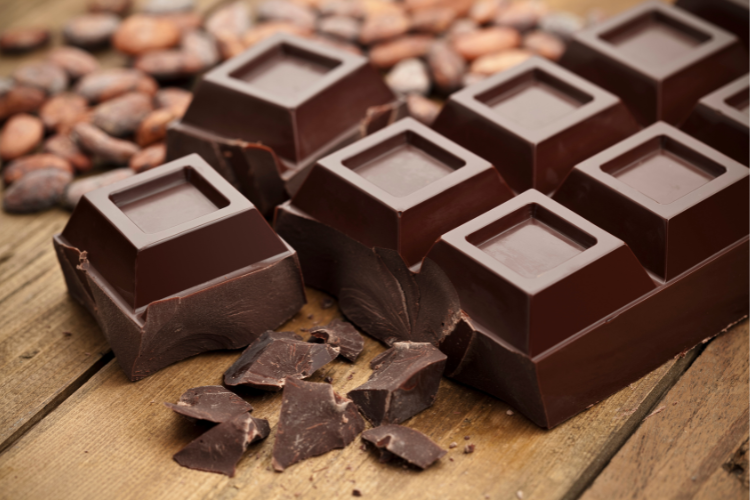
Conclusion:
Optimizing collagen levels through diet is a natural and effective way to promote healthy skin and overall well-being. By incorporating the 12 foods listed above into your meals, you can give your body the necessary nutrients to boost collagen synthesis and achieve a radiant complexion. Remember, beauty comes from within, and a collagen-boosting diet is a fantastic way to nourish yourself from the inside out.
Sources
- healthline, What Is It and What Is It Good For?
- Mayo Clinic, What is it and what role does it play in the body?
- Harvard Health Publishing, The skin and its structure
- American Academy of Dermatology Association, Diet for healthy skin
- National Institute on Aging, Skin Care and Aging


